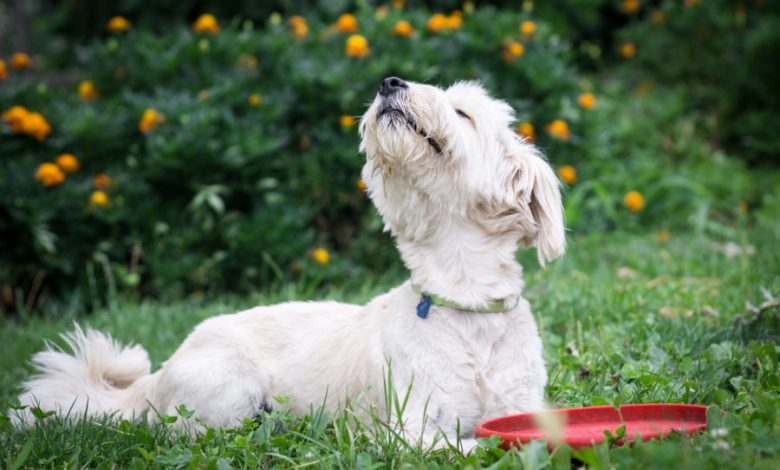The Do’s and Don’ts of Organic (pet friendly) Plant & Lawn Feed

The desire to use 100% organic plant and lawn feed is constantly on the rise. As such, ordinary domestic gardeners are seeking out the best ways to either buy or create their own organic plant and lawn care products.
This article is designed to help you understand what you should and shouldn’t do when it comes to creating a 100% organic gardening program.
From mixing your own organic products to using the right organic plant and lawn feed at the right times, there are a few things to consider in your move to organic plant and lawn feed.
So, let’s dive right in.
Do check the NPK value of all organic products
One of the most important attributes of any growth stimulant or root hardener used in the garden is the NPK (Nitrogen, Potassium, Phosphate) value.
Before applying any organic product, be sure to check if your chosen one has an NPK value. Some do (e.g. bonemeal) and some don’t (e.g. bio-stimulants such as liquid seaweed).
Once you know the NPK, you should make sure you use the correct NPK value at the correct time of year on both your plants and your lawns.
Don’t just sprinkle any organic products on your lawn
One of the least tolerant plants to changes in NPK is the lawn. Lawns require the right amount of nutrients at the right time of year if they are going to thrive and even just survive.
The lawn also needs to be given the right amounts dependent on its size. So, you’ll need to calculate how much to use – normally 30g per m2 for granular products. If you don’t approach this carefully you could end up destroying your lawn rather than helping it stay strong.
Don’t use products that can kill aquatic life
Some products, such as sulfate or iron, can be harmful to aquatic life when they get into the environment. Especially when they haven’t been fully diluted or used up in the soil.
Remember too, that just because you have fully used up the product yourself, there may still be some wastage at some point in the supply chain. Always check the label for warnings about something being harmful to aquatic life and other living things.
Do use 100% organic fertilizers to fuel growth
The number one rule behind organic gardening is to use either animal-based or plant-based products that are 100% organic. By doing so, you’re making use of by-products that may otherwise have been thrown away by the industry that created them in the first place.
Some products can seem organic but in truth, they aren’t registered as 100% organic because of extraction methods or other reasons. Always look out for those who specifically say they are 100% organic and registered as so.
Do mix different products to achieve the right NPK
Mixing 2 or 3 different by-products, you can easily create the right NPK needed for use as either plant or lawn feed.
You just need to make sure they are mixed at the correct percentages to achieve the correct amounts of Nitrogen, Phosphate, or Potassium.
To create and test your own home-made formulas
There are loads of articles on the internet that give ideas about creating your own homemade growth stimulants or weed suppressants.
Things like compost tea and vinegar-based suppressants are just a couple of examples. If you have a problem in the garden or are just interested in finding out more, a simple Google search will definitely help you find more information about making homemade garden feeds.
Don’t use chemical-based products
Chemical-based products can give off a lot of CO2 emissions as they are formulated and manufactured to create NPK formulas right for the lawn or plants.
In some respects, these are still useful to different industries, however, using chemicals means you won’t be achieving 100% organic gardening.
Don’t use harsh chemical herbicides to kill weeds
Some herbicides, namely those that include glyphosate are very bad for the environment. Some research suggests that these products can be far more dangerous than first thought – to both humans, animals, and the garden.
Many professionals give reference to glyphosate formulations being prone to destroy the micro-organisms in healthy soil. As such, this could be counter-intuitive to your wanted plants because healthy soil is the most important contribution to better growth and even the harvesting of edible plants.
Do use naturally created herbicides
Naturally created herbicides are a much better option. Regardless of whether you’re looking to be 100% organic. These generally don’t contain glyphosate but do contain products that can help you to contain unwanted plants (or weeds) growing in your garden. There are so many benefits of using the natural product in and around the garden. One of the biggest is a healthy soil environment for plants to grow and thrive.
Another is that kids and pets can also grow up healthily in a 100% organic garden. If you haven’t yet been transformed, hopefully, this post has helped you think a bit more about it.
Write For Us Sponsored Post-Articlewine






